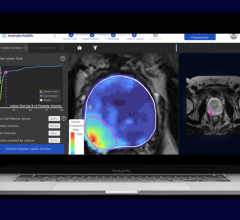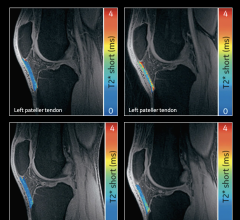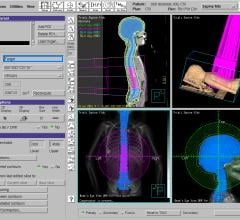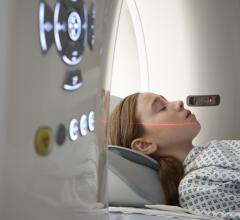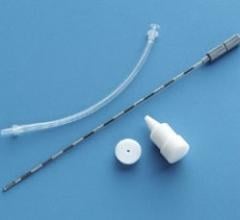February 25, 2011 – Breast cancer screening with magnetic resonance imaging (MRI) can detect invasive cancers missed on mammography in women who’ve undergone chest irradiation for other diseases, according to a new study in Radiology.
Women who receive radiation therapy as children and young adults for diseases such as Hodgkin’s lymphoma face a significantly greater risk of breast cancer later in life. The incidence of breast cancer increases approximately eight years after chest irradiation, and 13 percent to 20 percent of women treated with moderate- to high-dose chest irradiation for a pediatric cancer will be diagnosed with breast cancer by age 40 to 45. In comparison, the cumulative incidence of invasive breast cancer by age 45 among women in the general population is only 1 percent.
“MRI’s efficacy as an adjunct to mammography in screening women at high risk because of genetic mutation or family history has been established,” said the study’s lead author Janice S. Sung, M.D., radiologist at Memorial Sloan-Kettering Cancer Center (MSKCC) in New York City. “However, there were no reports in the literature about utility of MRI screening in women who are at high risk specifically due to prior chest irradiation.”
In the study, Sung and colleagues reviewed screening breast MRIs performed at MSKCC between January 1999 and December 2008 on women with a history of chest irradiation. They looked at data from 247 screening breast MRIs in 91 women, with a focus on the number of cancers diagnosed, the method of detection and the tumor characteristics.
Of the 10 cancers found during the study period, four were detected with MRI alone, three with MRI and mammography, and three with mammography alone. The four cancers detected with MRI alone were invasive, while the three cancers detected with mammography alone were in their early stages.
The addition of MRI to the screening process resulted in a 4.4 percent incremental cancer detection rate. A combination of MRI and mammography produced the highest sensitivity for detecting breast cancers.
“Our results support existing recommendations for annual screening MRI as an adjunct to annual mammography in women with a history of chest irradiation,” Sung said.
Despite clear evidence of MRI’s benefits, previous research by study co-author Kevin Oeffinger, M.D., showed that very few women ages 40 to 50 with a history of chest irradiation had undergone screening breast MRIs. Lack of awareness and limited insurance coverage are possible reasons, according to Sung. MRI is also considerably more expensive than mammography.
“We hope our study and other research will bring more attention to the fact that MRI helps detect more cancers,” Sung said. “We would like to see more high-risk patients undergo screening MRI.”
For more information: http://radiology.rsna.org


 May 14, 2024
May 14, 2024 
